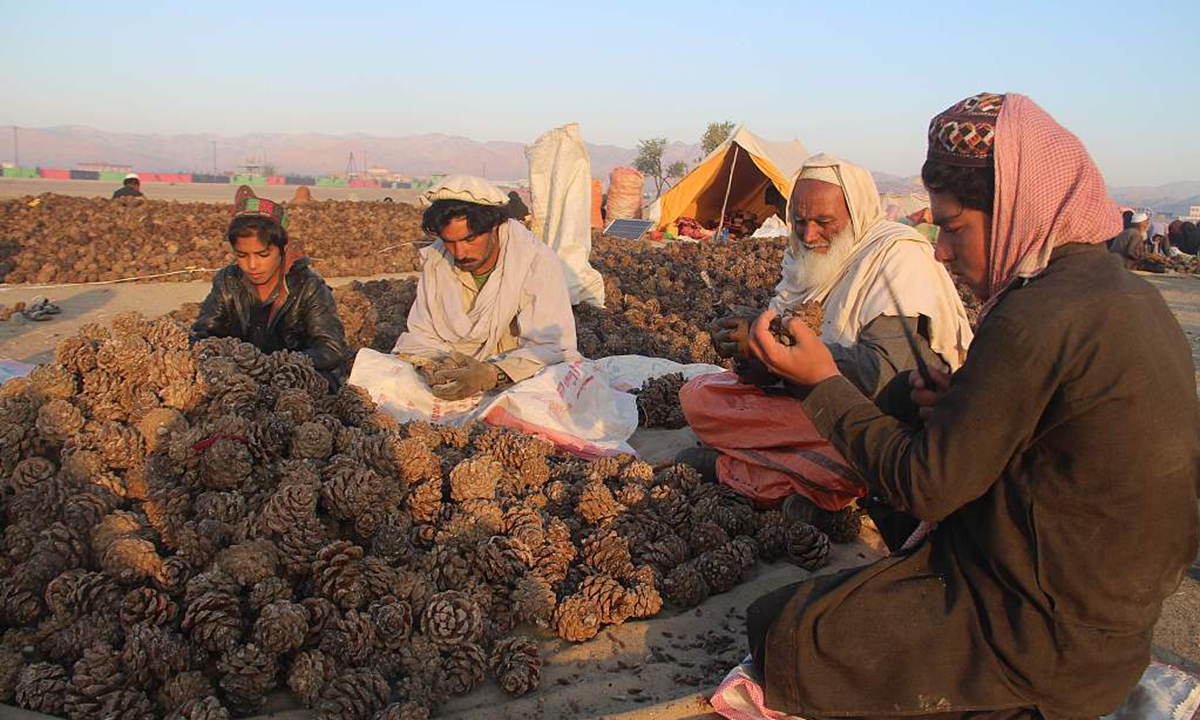1,170 tons of pine nuts shipped from Afghanistan to China to aid economic reconstruction of the war-torn country: FM

Locals work in a factory extracting and preparing pine nuts in Khost, Afghanistan on November 13, 2019. Photo: VCG
A total of 1,170 tons of pine nuts, carried in 26 chartered flights, have arrived in China from Afghanistan, generating more than 100 million yuan ($16 million) in revenue for the Afghan people to date. China will also work to promote the shipment of more Afghan special agricultural products to China, such as saffron, to aid in economic reconstruction of the war-torn country, China's Foreign Ministry said on Monday.
"With US financial controls on the country, the 39 million Afghan people are facing a humanitarian crisis. As Afghanistan's friendly neighbor and sincere friend, China attaches great importance to Afghan people's livelihood," Foreign Ministry spokesperson Zhao Lijian said at a regular press briefing on Monday, noting that China has taken multiple measures to help Afghanistan tackle financial and employment difficulties in addition to providing humanitarian aid.
In October, China has renewed the license for chartered flight on request of the Afghan interim government, resuming the "pine nut air transport corridor."
The first batch of 45 tons of pine nuts from Afghanistan arrived in Shanghai on November 1, marking the first time Afghanistan has exported goods to China since the Afghan Taliban took power in the country. The 120,000 cans of pine nuts immediately flew off the shelves once put on display at the China International Import Expo.
The "pine nut air transport corridor" was opened in 2018 and brought a revenue of $15 million for the locals within four months. Under the corridor, between 3,000 and 5,000 tons of pine nuts were transported to China every year, which has brought tangible benefits to the peoples of both countries and also transformed the air corridor into an important link for bilateral friendly cooperation, Zhao noted.
According to Zhao, the annual output of pine nuts in Afghanistan is around 20,000 tons, with an export volume of $800 million. It also creates jobs for more than 100,000 locals. However, with poor transportation infrastructure and years of war, the commercialization of high-quality pine nuts faces great difficulties.
